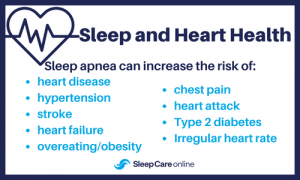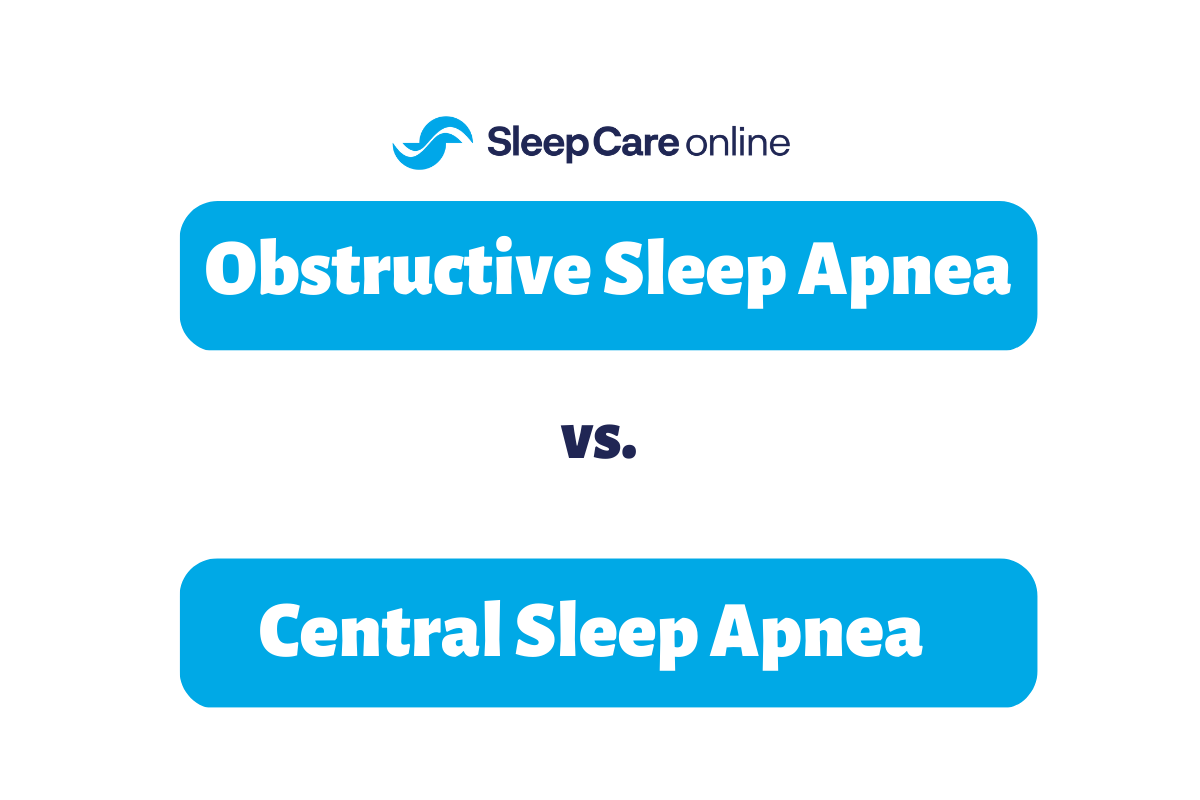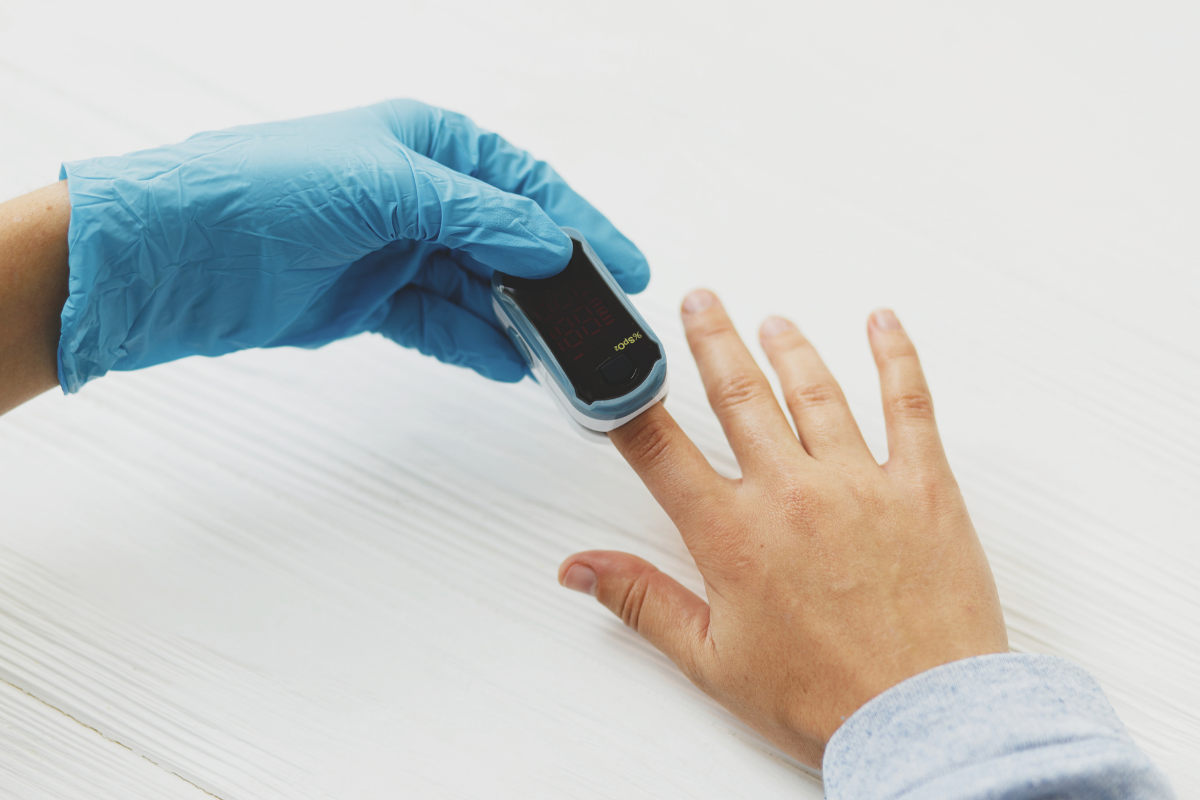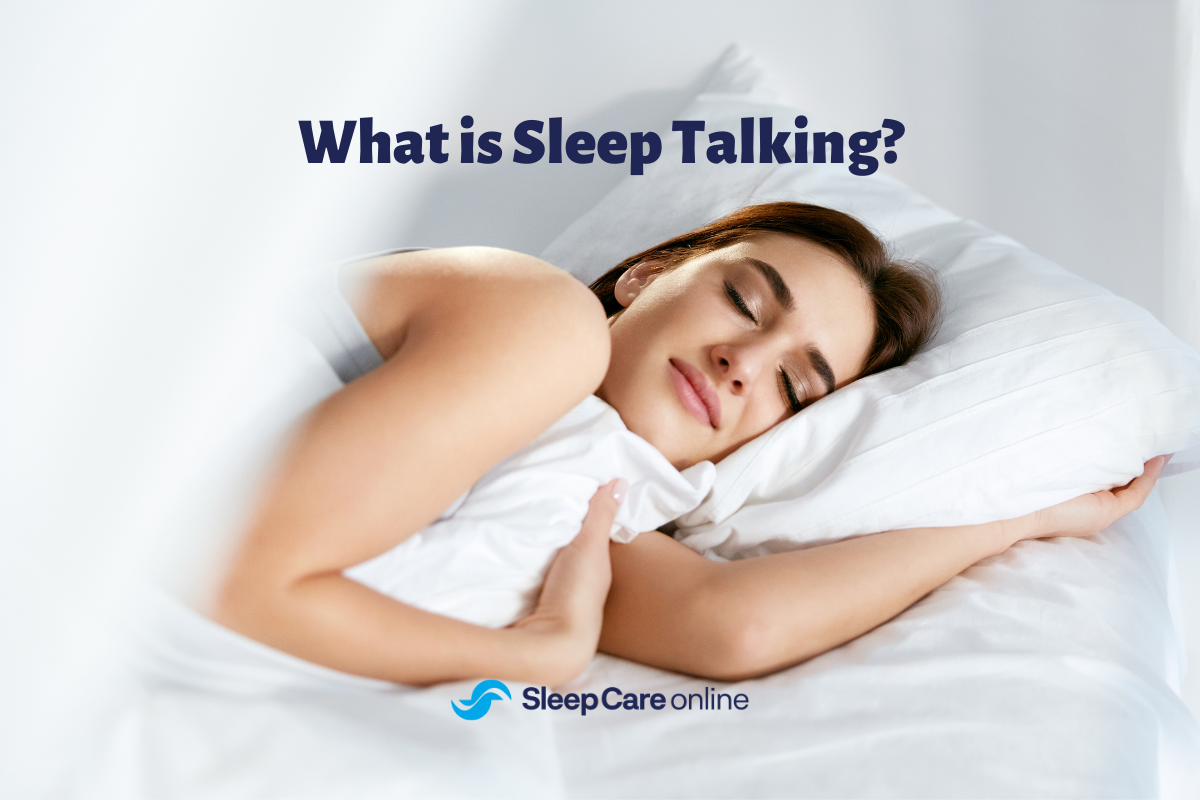
Obstructive sleep apnea (OSA) has been linked to a number of short- and long-term health risks, including obesity, hypertension, and stroke. One predominant comorbidity is cardiovascular disease. In fact, research published by Harvard Health indicates that sleep apnea is present in 47% to 83% of individuals with previously diagnosed cardiovascular disease.1
Sleep Apnea and Heart Failure – What is the Connection?
What is the connection between sleep apnea and heart health? Sleep plays a key role in the body’s ability to recover. Inadequate sleep equals inadequate recovery. Though the number of studies observing the direct correlation between OSA and heart failure is limited, sleep apnea has been linked to an increased risk of hypertension, heart attacks, and atrial fibrillations (irregular heart rhythms).2 These factors can ultimately increase one’s risk of sudden heart failure.
How Does Lack of Sleep Impact Heart Health?
Heart disease is the leading cause of death worldwide. Poor sleep and sleep disorders, like sleep apnea, could play a part in that. The symptoms of sleep deprivation also raise heart rate, elevate high blood pressure, and can put stress on the heart. Sleep apnea increases your risk of developing the following problems:
- heart disease
- hypertension/high blood pressure
- stroke
- chest pain
- irregular heart rate
How Does Obstructive Sleep Apnea Cause Heart Failure?
Sleep apnea causes frequent episodes of interrupted sleep which can lead to a consistent drop in blood oxygen levels. Over time, this reduced blood oxygen rate begins to damage blood vessels. Each time the oxygen level drops, your body tells your heart to beat faster and your blood pressure to go up. Stress on the heart from severe OSA can also cause the heart to get enlarged. An enlarged heart does not pump as well, and the heart and body get even less oxygen.
Anyone not getting the essential sleep they need is putting undue stress on the heart to manage lower-than-normal blood oxygen levels, which can result in heart failure.
What Other Heart Problems Can Sleep Apnea Cause?
Along with increasing the risk of heart failure, sleep apnea can cause other cardiac issues including high blood pressure. Of all people with hypertension, about 30% have obstructive sleep apnea. If you have obstructive sleep apnea, there is a 50% chance you also have hypertension.
OSA may also affect the normal beating pattern of the heart. People with severe obstructive sleep apnea are four times more likely to experience atrial fibrillation (a type of irregular heartbeat) and bradycardia (slow heart rate.)
People with obstructive sleep apnea are also more likely to have coronary artery disease. Coronary artery disease (also known as the hardening of the arteries) happens when the small blood vessels that supply blood and oxygen to your heart become narrow. Narrowed coronary arteries can lead to heart attacks and heart damage.
Can a Sleep Study Detect Heart Problems?
The main purpose of a sleep study is to detect and diagnose sleep disorders, such as OSA. Plus, the data gathered during the study may also identify indicators of other health problems.
In one particular study, researchers used a modified pulse oximeter to detect variations in heart and blood vessel function during sleep. The goal was to screen patients for high-risk of cardiovascular disease while sleeping. In the pilot study of 148 people, more than 80% of high-risk patients were identified by this simple and risk-free measurement technique.3
How to Reduce the Risk of Heart Disease
Given the significant correlation between sleep apnea and heart disease, it’s important to know the signs and symptoms of both and find ways to reduce the risk of developing either illness. Some ways to do so are:
Make Lifestyle Changes. Doctors may first recommend to make a few changes to your typical lifestyle. This includes exercising, losing weight, limiting alcohol, quitting smoking, or even changing your sleep position at night.
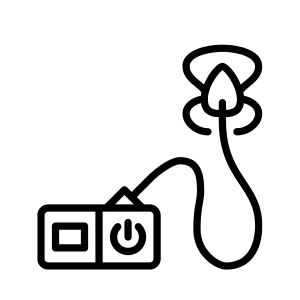
Try Mouth and Throat Exercises. Doing certain mouth and throat exercises can help make those parts of your body stronger and less likely to interfere with breathing while you are asleep.
Have Surgery. If no other options are working to help sleep apnea, your doctor may recommend surgery to remove any airway constriction. They may also recommend implanting a device that causes muscles to tighten in the airway.
Sleep Apnea Treatments for Heart Patients
Independent of heart-related health issues, the best and current treatment for sleep apnea is CPAP therapy. Using pressurized air, CPAP therapy prevents an individual’s airway from closing. This allows them to achieve more restful and restorative sleep while placing less strain on their body. Other lifestyle changes, such as a moderate cardiovascular or weightlifting program, may be recommended to decrease the risk of heart failure in sleep apnea patients.
At-risk patients should consult with their physician prior to starting such programs.
What Happens if Sleep Apnea Goes Unaddressed in Heart Patients?
Ignoring the symptoms of sleep apnea can lead to serious health consequences. When the airway becomes obstructed, oxygen cannot enter the body and carbon dioxide cannot escape. This results in a decrease in oxygen levels in the blood. According to one study of approximately 10,000 patients, researchers discovered that blood oxygen levels below 78% increased the risk of sudden cardiac death by 80%.2
Identifying the Symptoms of Sleep Apnea
If you have a heart condition but have never been diagnosed with sleep apnea, be aware of the most common symptoms.
- Loud snoring
- Gasping for air at night
- Morning headaches
- Excessive daytime drowsiness
- Dry mouth in the morning
- Restless sleep
- Daytime irritability and difficulty concentrating
How to Get a Sleep Apnea Diagnosis
A doctor’s office visit is no longer necessary for a sleep study. Sleep Care online offers an affordable, convenient solution to traditional in-lab sleep tests. Here’s how it works:
- With the Complete Care Package, schedule a 10-minute telehealth visit with a healthcare provider to discuss your symptoms, upcoming sleep study, test results, and treatment options.
- A multi-night, disposable home sleep apnea test is mailed to your home to be completed at your convenience.
- A physician analyzes the sleep data and provides a prescription if needed.
- Schedule an optional follow-up appointment (additional fee applies).
- We connect you to sleep experts who can offer customized sleep therapy options, assistance in equipment purchase, and initial set-up.
The sooner you receive a proper diagnosis, the faster you’ll get a good night’s sleep. If you still have questions, reach out to our customer care team at 866-465-4478 or at [email protected].
Home sleep apnea tests and telehealth services are now available nationwide.
References:
- Harvard Health Publishing. How Sleep Apnea Affects the Heart. 2013 Feb. Accessed May 2020.
- Nordqvist C. Obstructive Sleep Apnea Raises Sudden Cardiac Death Risk. Medical News Today. 2013 Jun. Accessed May 2020.
- Cardiovascular disease can be detected earlier during sleep. Science Daily. 2011 Apr. Accessed May 2020.

